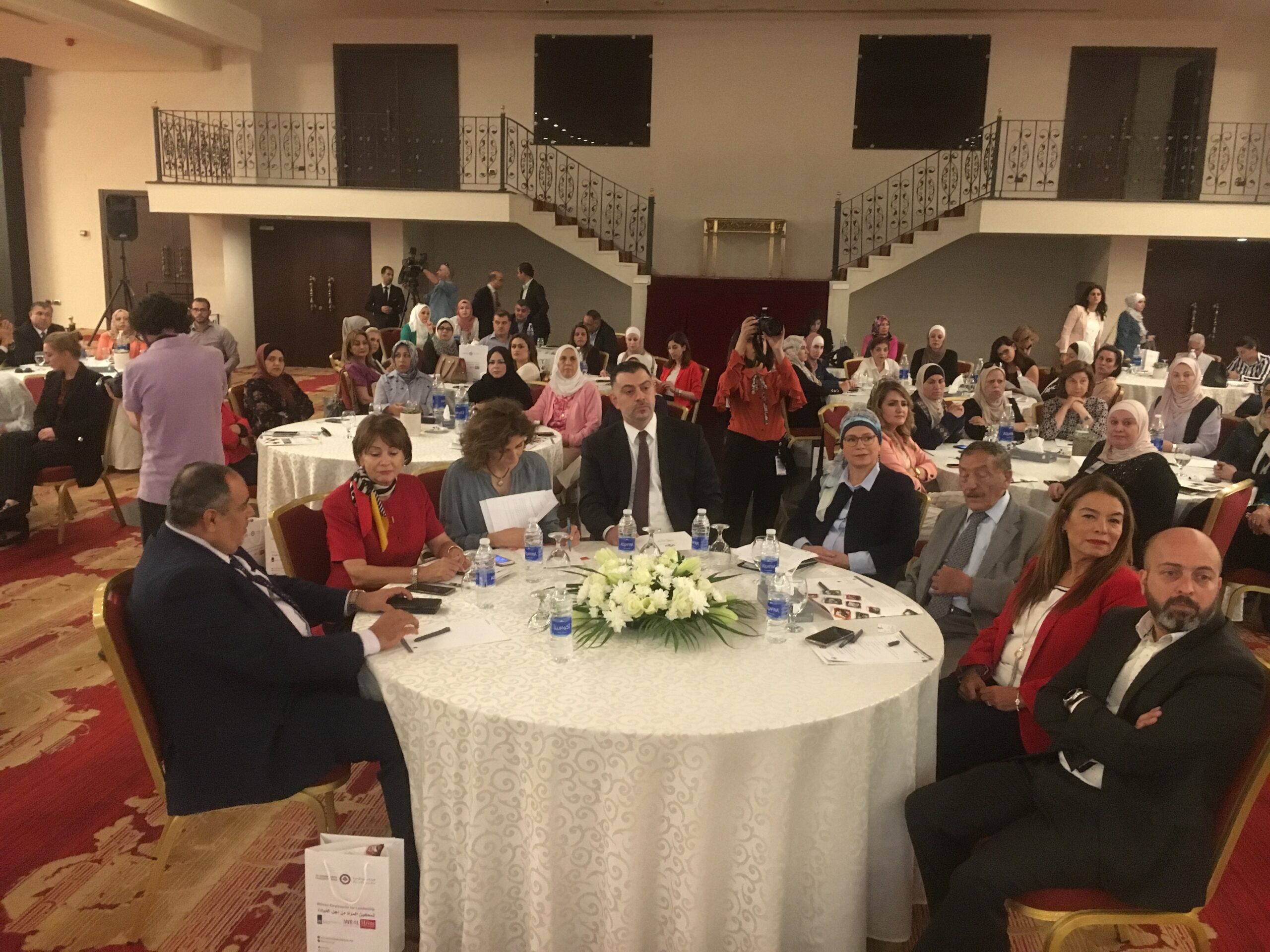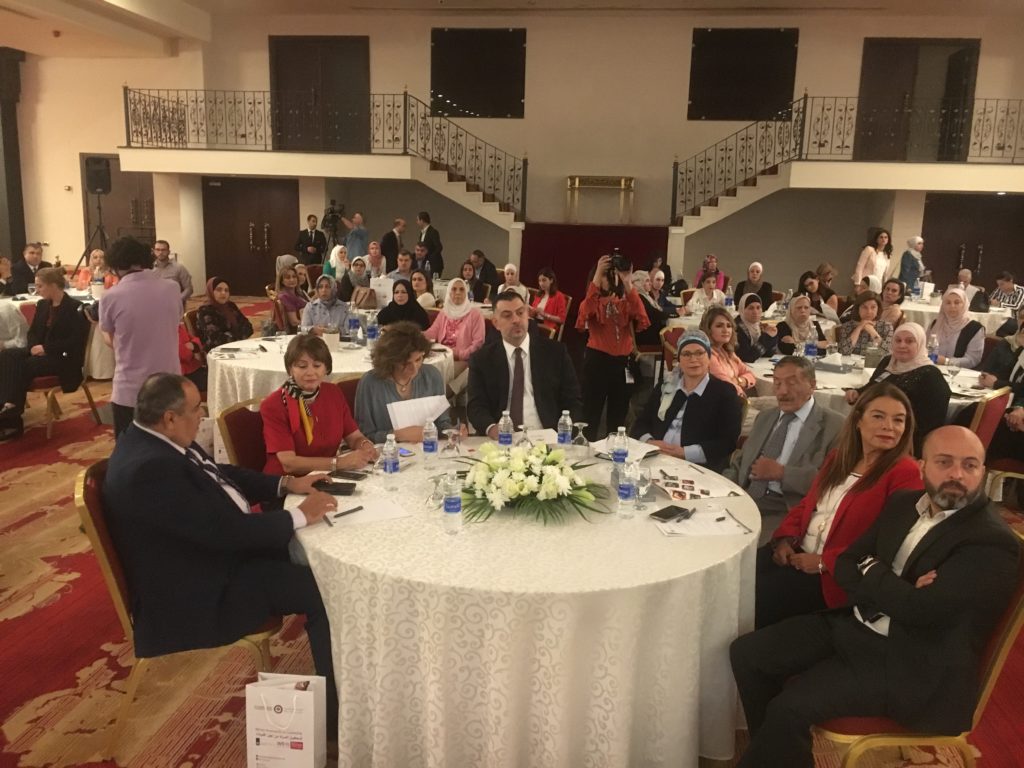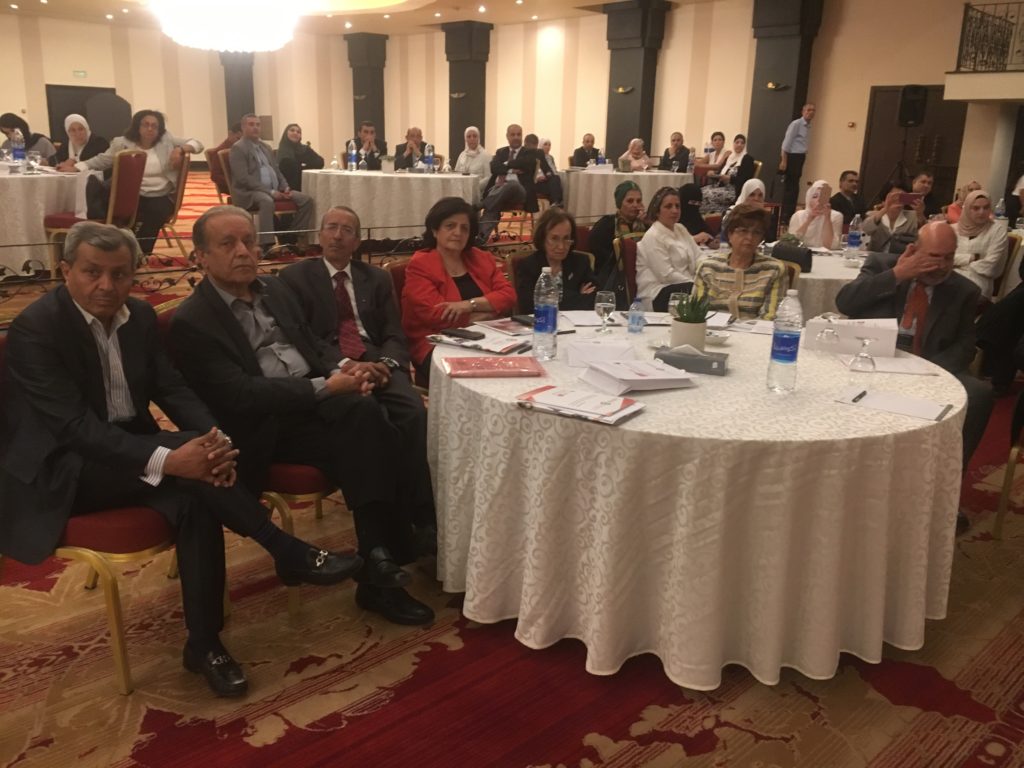id=”652″ id=”post-1969″ class=”wp-post-content-block ” itemscope itemtype=”http://schema.org/BlogPosting” itemprop=”blogPost”>
JNCW Launches Policy Paper to Increase Women Participation in Decision-making Positions in Trade Unions and Professional Associations
By: Shara Jazzar
Trade unions and professional associations are the foundation of proper and efficient political work in any country. In that framework, and with the aim of supporting a larger number of Jordanian women to hold decision-making positions in trade unions and professional associations, JNCW – in partnership with Hivos and the support of the Dutch MFA – launched the “Mechanisms and recommendations proposed to support trade unions and professional associations to increase effective women participation in decision-making positions” policy paper. The event falls under the “women empowered for leadership in trade unions, professional associations and political parties in Jordan” project.
Jordanian women participation in trade unions and professional associations
According to the policy paper, only 15% of the total number of members of the administrative boards of trade unions are women. As for professional associations, the percentage is even lower and equals 9%. The issue here is that females rarely choose to become members of trade unions and professional associations for reasons revealed by both the study and audience, which we will address below. As a consequence, only a few women compete to become members of the administrative boards when elections take place.
Relation between trade unions, professional associations and political life
Women participation in trade unions and professional associations extends their ability to reach leadership positions and their role in impacting the local political life and legislation. In that framework, Salma Nims, secretary general of JNCW, highlighted that “in order to strengthen women’s political weight, we should uplift their role in trade unions.” As for Barbara Joziasse, Dutch ambassador to Jordan, “the government, the private sector and trade unions constitute a triangle that help achieve economic prosperity of individuals.” This means that either these three partners support one another to achieve growth; or at the contrary, they do not play their role properly and lead to a negative impact on the economy of the country.
What hinders women from becoming members of trade unions and professional associations?
Nidal Batayneh, Jordanian Minister of Labor, expressed that “it is particularly important to increase the awareness related to the importance of being members of trade unions.” This is one of the major issues that stand in the way of women joining trade unions and professional associations. If they knew the importance of such membership, they would definitely work harder to ensure they join them. Moreover, there is a need to “change people’s perception on the role of women and make the latter believe in their capacities to hold leadership positions,” as one of the participants highlighted. This is mainly due to the fact that women are “socially conditioned to think that males are better leaders than females,” Nims underlined. This leads them to support men rather than women during elections.
Photo by: Shara Jazzar
The presentation was followed by a discussion with the audience about the importance of women role in trade unions and the challenges they face on both the practical and the legislative levels, which prevent them from becoming members of trade unions and professional associations and consequently from reaching leadership positions. In that context, one of the participants stated that “we cannot discuss trade unions without addressing difficulties faced by workers, all workers.” This point is particularly relevant because change needs to be global and not only directed to one category. Another important point was highlighted, “the gap between women living in Amman and others living in distant cities or towns”. The latter are unaware about the presence and the importance of joining trade unions and professional associations in terms of securing their rights. Thus, there should be more effort to invest in reaching out to them.
Recommendations of the study
The launch of the policy paper is an important step when it comes to improving the preconditions for women’s rights and gender equality in Jordan. What makes its impact stronger is that it has the support of the Ministry of Labor; thus, both public and private institutions are working hand in hand in promoting and contributing to women’s rights and gender equality. Now is the time to implement the recommendations of the study and review the laws, regulations and by-laws of trade unions and professional associations in order to promote a gender responsive environment, as well as merging gender perspective with policies, plans and programs at all levels. Moreover, awareness should be raised regarding the importance and significance of union work, and the role of women committees inside the unions should be reactivated.
Finally, “the policy paper put the finger on the wound”, according to the audience’s feedback. The statistics shared were shocking and revealed the extent of the problem to decision-makers, as well as members of trade unions and professional associations present.
Click on the links below for accessing the resources:
دراسة مرجعية واقع مشاركة المرأة في النقابات العمالية والمهنية نهائي






